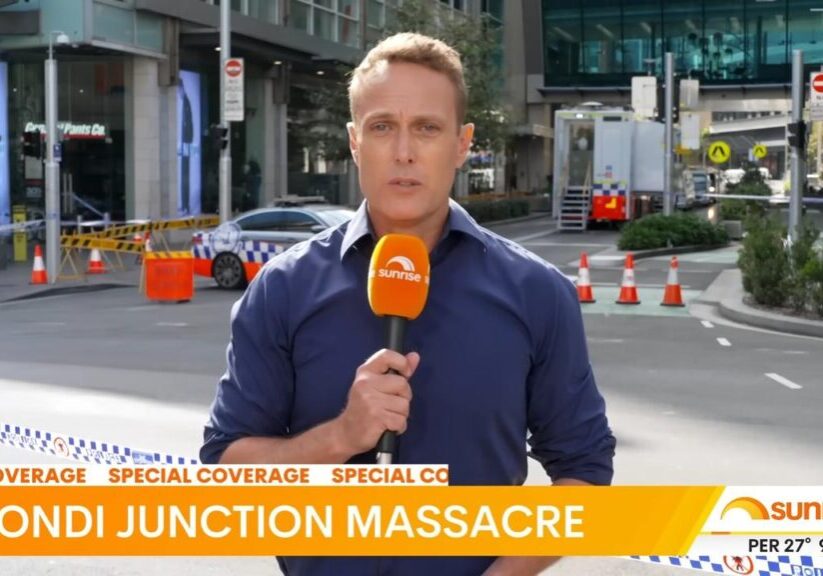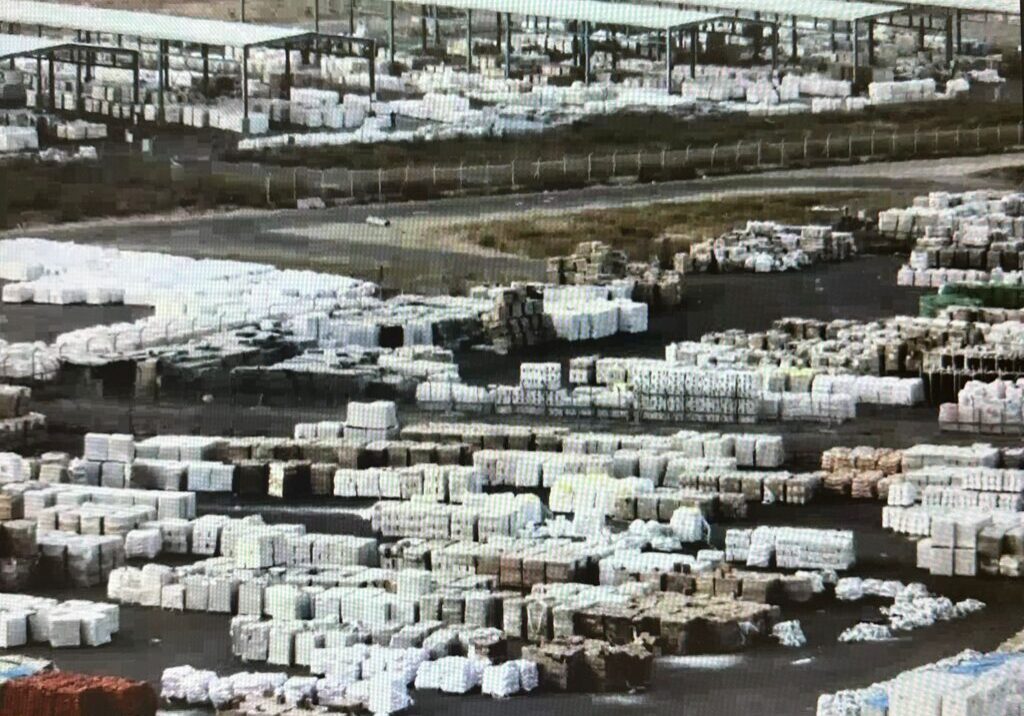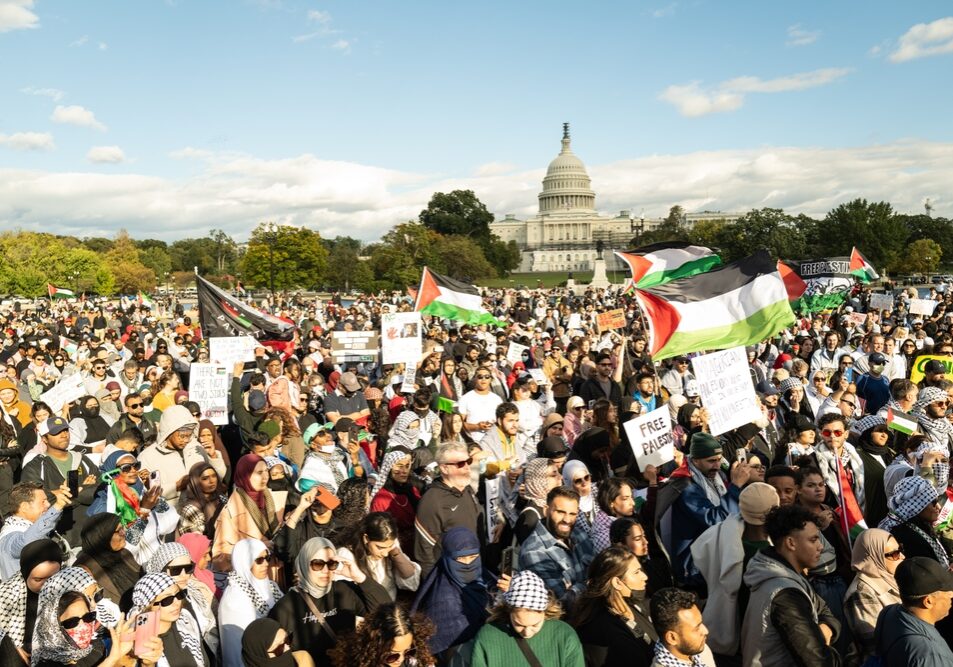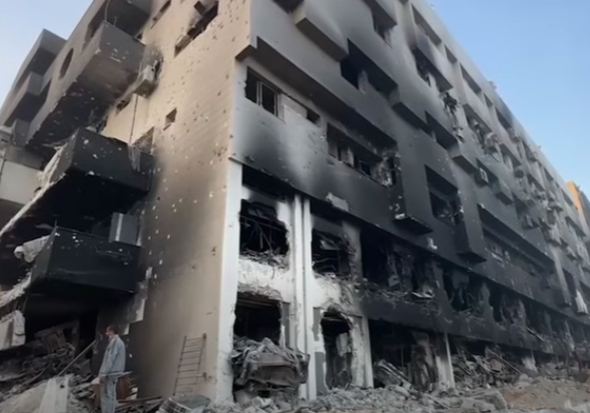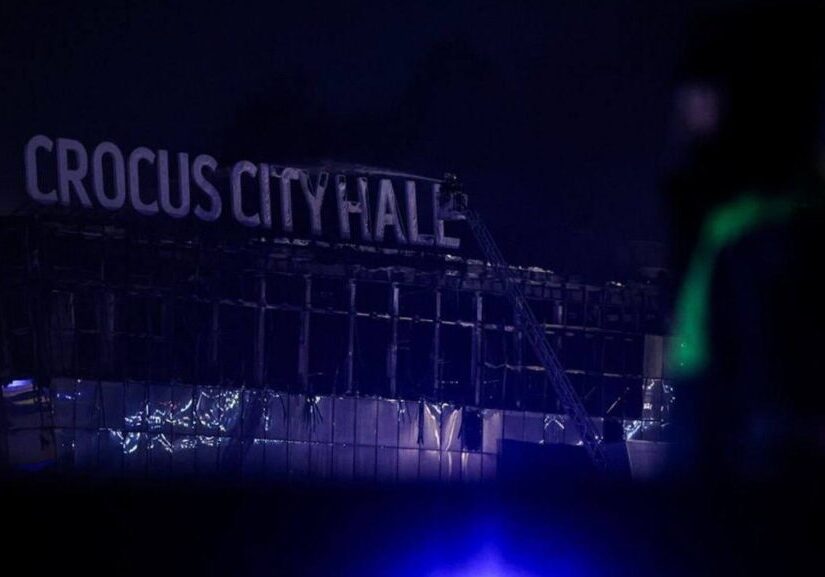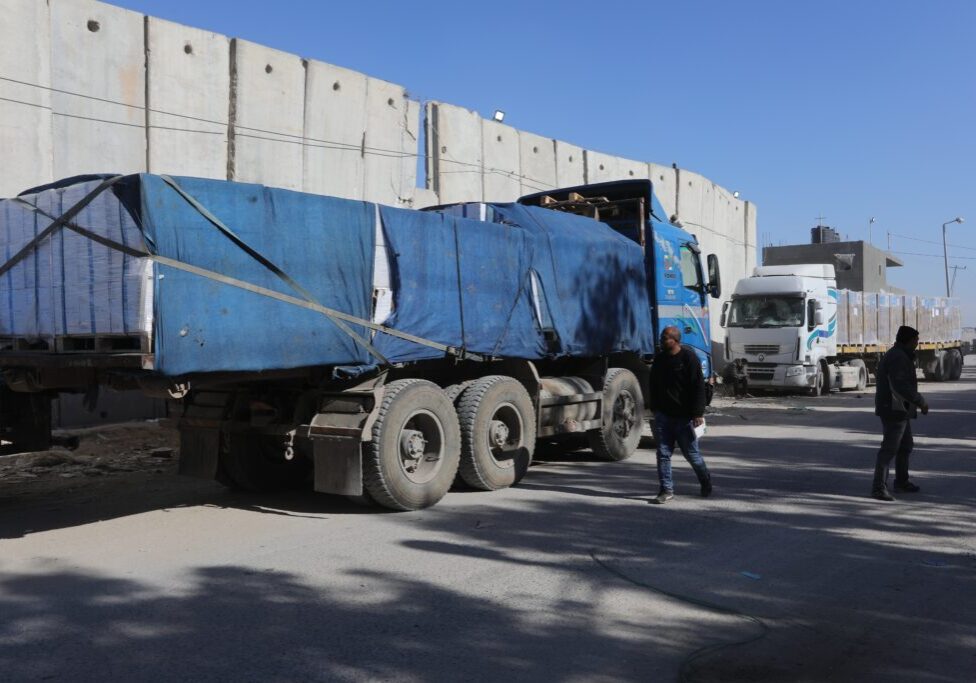FRESH AIR
UPDATES
Tony Jones’ King Hit
Nov 28, 2016 | Allon Lee
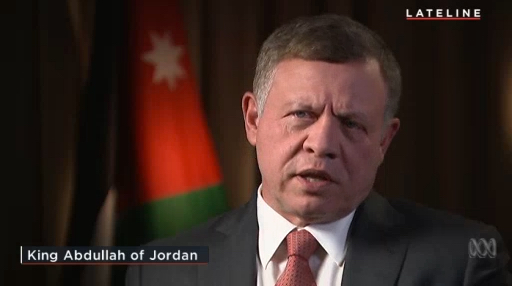
ABC TV “Lateline” host Tony Jones scored a real coup in securing a twenty minute interview with visiting Jordanian King Abdullah II.
Although the conversation was conducted in English, they may as well have been speaking a different language, with Jones exhibiting a shallow understanding of the region’s complexity, and ignoring or misunderstanding what the Jordanian monarch said.
This was apparent primarily in Jones’ seeming lack of understanding that Israel and its Sunni Arab neighbours – including Jordan – are on the same page in agreeing that the P5+1 deal (Joint Comprehensive Plan of Action or JCPOA) to ostensibly limit Iran’s nuclear program is a disaster that will only embolden Iran’s hegemonic ambitions. He seemed to assume that the King agreed with US President Barack Obama that the deal was the best thing since sliced bread, and it was only Israel that was throwing a spanner into the works.
How else can one explain Jones’ series of questions when he asked the King how a Trump presidency might impact upon the nuclear deal?
As Jones asked:
Just looking at this incredibly complex equation, and particularly within Islam itself where you’ve got the schism between Shia and Sunni Muslims and on the Shia side you’ve got this power emerging of Iran. And the big question mark that a lot of people have now since we have a nuclear peace deal the United States, Obama, struck with Iran, is whether Trump will be persuaded by Israel to drop that deal. What do you think, do you think he would…
Abdullah’s response spoke volumes. Given the chance to score some easy propaganda points by, for example, ripping into Israel and its nuclear program, King Abdullah instead changed the topic:
I wouldn’t want to speculate on that. I’m sure there are concerns in our part of the world and as you said we do have some countries that have this Shia-Sunni tension. That’s the least thing that we want now is an inter-religious war. We have our problem inside of Sunni Islam, which is what we call the khawarij outlaws of Islam. These are the perpetrators that have done criminal acts in my country, in Europe, in yours. This is the franchise that we’re dealing with. A Shia-Sunni conflict inside of the Middle East is opening Pandora’s Box. I mean the fault line between Shiaism and Sunnism goes from Beirut to Bombay. So that’s one last thing that we need. At this point we need to concentrate against what we call the khawarij outlaws of Islam.
But Jones was undeterred, rephrasing his original question, to inject Israel’s opposition into the debate:
Do you think it’s important that the United States, and it’ll be in the hands of Congress as well as the President, keep a hold of that nuclear deal with Iran? Would it upset the balance of power if the Americans decided, urged by the Israelis, to drop it?
Conscious that Jones was not satisfied his question had been answered, King Abdullah politely and somewhat dryly explained that Iran’s nuclear program is only one plank of an ongoing, multipronged strategy to project and secure regional influence:
Well, you know, Iran has been responsible in inciting sectarian conflict in our area, and again, when you look at the Iranians, they have several cards that they play. So one of them is the nuclear card, one of the them is the card that I just mentioned, they do support organisations that sometimes are considered terrorist in nature. So I think when you look at Iran you have to look at it in its totality, and again, it’s too early for us to understand where the new American policy is going to be on that. Everybody is going to have their opinion but I think we’ve got to keep it in the bigger picture aspect of things.
Jones’ next question seemed to indicate that he thought King Abdullah had confirmed that ending the deal would be bad, telling the King:
Yeah because I’m thinking too how that might impact on Syria with Iran, Russia, the United States, and other Arab countries with really serious interests in Syria, whether that balance could be upset by something like that.
If Jones’ implication was to suggest that breaking the deal would upset the “balance of power” in the Middle East, the millions of displaced and 400,000 plus dead in Syria might disagree that there is any such balance – if they could talk of course.
In fact, there is ample evidence that the conclusion of the nuclear negotiations has freed up Iran – with Russian help – to dramatically increase funding and arms to the Assad regime’s fight against the majority of its own people in Syria, as well as the use of Iran’s own Shi’ite militia groups in Iraq, leading to more overt attacks on civilians.
Perhaps thinking he had been misunderstood, Abdullah gently recapitulated that a Trump Administration must understand the Iran’s role as the lynchpin of much of the current turmoil in the Middle East, saying:
So if you’re going to look at Iran, you have to understand that Iran does impact, well Afghanistan on one side, but Iraq, Syria, Lebanon to an extent, we have issues in Yemen, and we have some problems in Africa.
Jones’ thinking was not surprising, echoing the ABC groupthink on the issue reflected in its coverage, implying that the only opposition to Iran and the deal is from Israel.
An all too common example of this was Deakin University academic Scott Burchill telling ABC Radio host Jon Faine on July 21, 2015 that the deal would pass in Congress “although it will upset the Israel lobby and the Congress that is basically beholden to that lobby.”
ABC coverage largely parroted President Obama’s talking points and favoured experts who praised it as a good deal, giving little time for those who might explain why it wasn’t.
Moreover, since July 2015, there has been scant ABC coverage of Iran’s persistent breaches of the deal, of the recently revealed secret annexe to the deal that gives Iran even more latitude to conduct its nuclear research covertly, and the shackles placed on the International Atomic Energy Agency to report on Iranian compliance.
Jones should have done his research and known the volume of the opposition in the Sunni Arab world on the deal may have been sotto voce, but no less a clarion call than Israel’s more public denunciations.
Indeed, King Abdullah had famously warned in December 2004 of the threat of a “Shia crescent”, which was widely understood in the region as code for Iran’s hegemonic ambitions.
And as the Jordan Times reported in August 2015, a poll of Jordanians showed that “Forty-six per cent of the respondents believed that Iran has benefited the most from the nuclear deal with the world powers while 25 per cent and 18 per cent believed that the US and Israel were the top beneficiaries from the agreement, respectively”.
Jordan’s response in January 2016 to rioters in Teheran attacking the Saudi Embassy following the execution of a Shi’ite cleric was also revealing, as the Jordan Times reported:
five days after this incident, Jordan summoned Iran’s ambassador in Amman to officially inform Tehran of Jordan’s denunciation of Iran’s interference in regional countries’ affairs, especially those of Saudi Arabia. A Foreign Ministry official hinted that stronger stands might be taken in the future, stopping short of stating whether severing diplomatic ties is an option.
And when Abdullah was asked on January 2016 by CNN‘s Wolf Blitzer what he thought of the imminent lifting of sanctions, Abdullah answered:
It is a concern to a lot of us in the region, and I think further afield, and so this is why I said there is a linkage between the nuclear deal and how Iran performs on the other portfolios. I think they are going to be held up to how they perform also on those other sectors. We will have to see how that happens and where we hold them accountable on what other potential mischief may be found.
Beyond Jordan, the Arab response at the time of the agreement’s announcement in July 2015 saw dignitaries employ unusually blunt language to denounce it.
As the Washington Post noted of the reaction of Prince Bandar bin Sultan, Saudi Arabia’s longest serving Ambassador to the United States and head of the Saudi intelligence services between 2012 and 2014, in an analysis he wrote for the London based news website Elaph in July 16, 2015:
The Saudi prince says the new Iran deal and other developments in the region have led him to conclude that a phrase first used by Henry Kissinger – “America’s enemies should fear America, but America’s friends should fear America more” – is correct.
And Bandar understood what the deal’s effect would have on the region’s balance of power, saying:
The strategic foreign policy analysis, the national intelligence information, and America’s allies in the region’s intelligence all predict not only the same outcome of the North Korean nuclear deal but worse – with the billions of dollars that Iran will have access to.
The reaction in Israel and Jordan to the Lateline interview was instructive.
Lest there be some confusion, in its editorial the Jordan Times understood exactly where King Abdullah stood on the Iranian issue, literally regurgitating verbatim what was said in the interview:
King Abdullah, also [drew] attention to Iran’s incitement to sectarian conflict and its playing the “nuclear card”, which makes it incumbent on the international community to look at Iran “in its totality”.
The interview was also reported in Israel (for example, here and here), with no story or opinion dissenting with King Abdullah’s strategic analysis.
Perhaps the most telling part of the interview was the King’s observation about how the West responds to events in the Middle East:
I think… this is probably the challenge that…sometimes we have with the West is where a lot of us in the region are now into the battle of this and when we hear of peace initiatives or discussions for promoting governments – Libya is a prime example – where a lot of us see certain individuals on the ground that are actually taking the fight to the extremists, at this stage, you know, people want to come in and look at the democratic process of Libya, and we’re saying, guys we’re in the middle of a war. And a war for us is very clear – it’s them against us, and I think that’s the problem.
And although neither Jones nor Abdullah raised the issue of the Palestinians, this is an apposite observation that applies equally to the Western and ABC obsession with wanting to establish a Palestinian state when the conditions on the ground are not sufficiently ripe.
In other words, Israel is not the elephant in the room with everything that happens in the Middle East – even if many at the ABC seem unable to see past their own pet obsessions.
– Allon Lee
Tags: Iran

